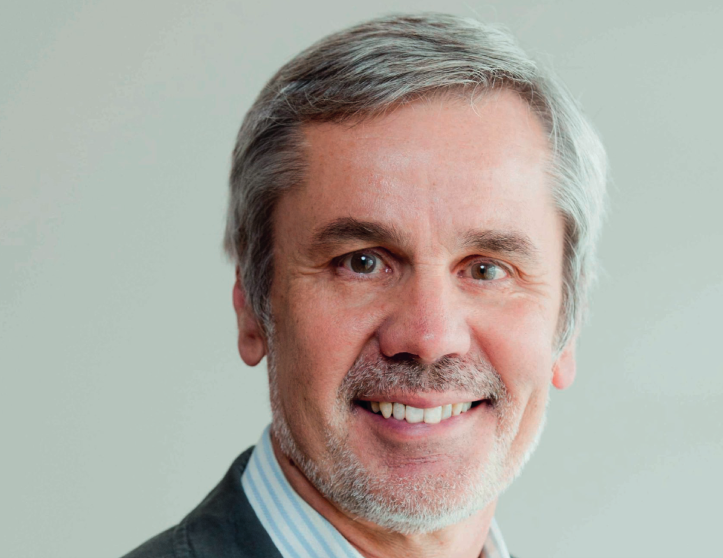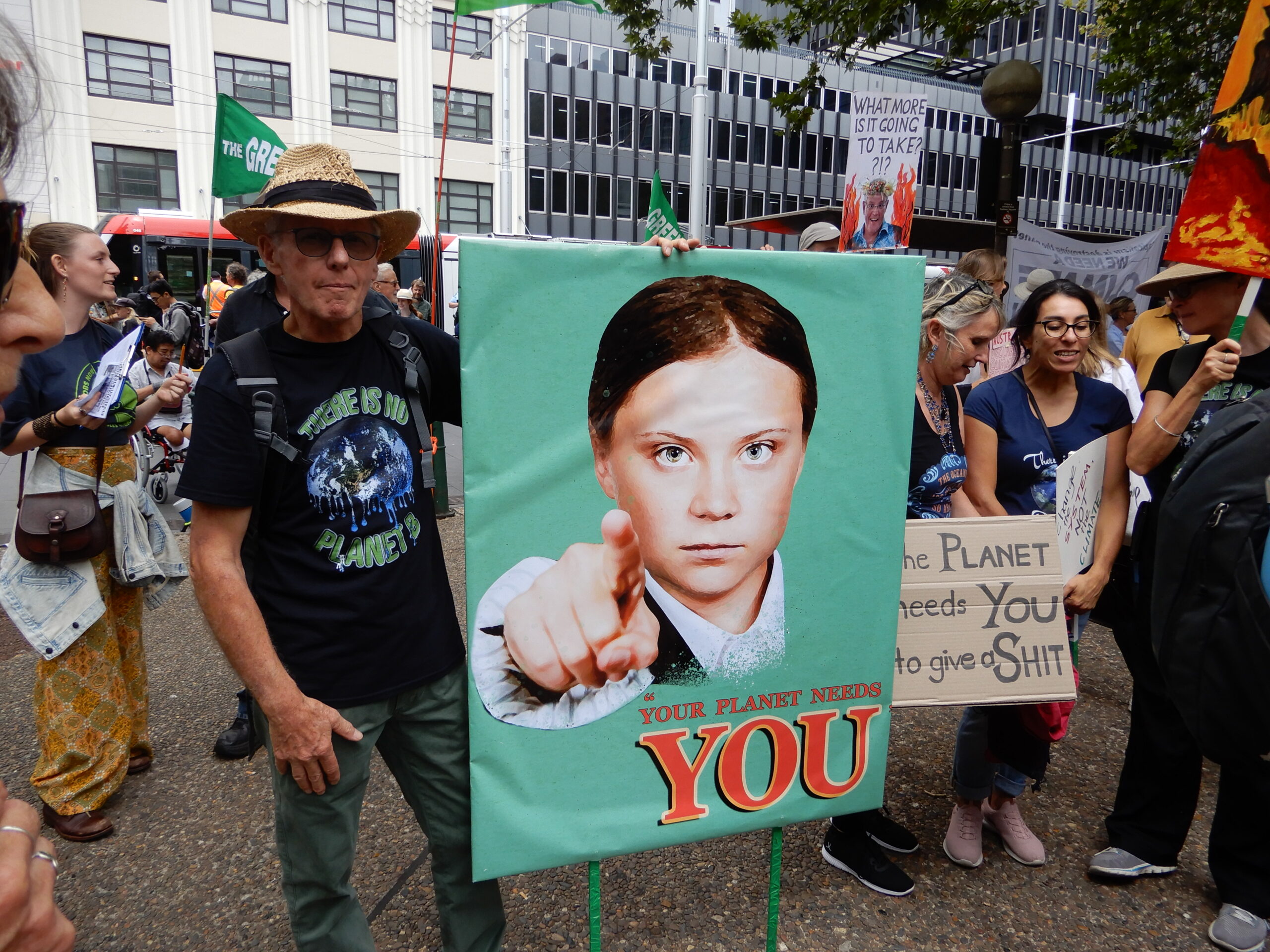The Threat of Climate-Caused Societal Collapse: An Interview With ANU Professor Will Steffen

Once confined to scientists, environmental activists and those brave enough to voice opinions countering the socially acceptable, concerns over the climate crisis have slipped into the mainstream, so that the majority now readily admit that humans are on a very dangerous trajectory.
A major impetus for this change in popular opinion was the release of the 2018 IPCC (Intergovernmental Panel on Climate Change) report, which warned that drastic efforts to curb global warming to below 1.5°C on pre-industrial levels must occur within the next 10 years.
Yet, as soon as this United Nations produced report was released, critics labelled it too cautious in its findings, as it failed to consider feedback loops: these are tipping points where a certain limit is exceeded, which would cause warming to accelerate beyond control.
Taking all this into consideration, a group of over 500 scientists and scholars from over 30 countries, have recently released an open letter calling on policymakers to consider the risks of societal disruption and even collapse, so that nations are ready for the growing potential of such scenarios.
A climate pariah
On the day of his inauguration, US president Joe Biden reinstated his nation’s involvement in the Paris Climate Agreement.
This is seen as something of a triumph after his climate-denying predecessor Donald Trump withdrew the world’s second greatest greenhouse gas emitter from the global agreement.
However, on the same day, our nation’s prime minister Scott Morrison once again threw his weight behind the coal industry, claiming that mining of the fossil fuel has the potential to generate wealth for Australians for decades to come.
Indeed, whoever the PM is working for, it’s certainly not grassroots Australians or the global community. Morrison has consistently backed coal over his time in office, and he continues to despite 20 percent of the country’s mainland forest having burnt down in climate-related bushfires.
End game upon us
Many climate scientists argue that societal collapse is likely this century, while others warn it could happen within the next ten years. However, discussion of such concepts in the public arena is often frowned upon because of the negative impact it could have upon society psychologically.
“People who care about environmental and humanitarian issues should not be discouraged from discussing the risks of societal disruption or collapse,” reads the open letter, and it goes on to add that some scientists believe “a transition to a new form of society” is possible.
One of the local signatories warning of the potential for societal collapse, is ANU (Australian National University) climate researcher Professor Will Steffen, who’s been involved in the production of five of the IPCC climate reports since the year 2000.
Sydney Criminal Lawyers spoke to founding councillor of the Climate Council Professor Steffen about the way that societies are already being impacted by climate-related disruptions, what it means to be facing potential collapse, and how, despite all this, he still has a positive outlook.

Following his inauguration, one of the first decisions president Biden made was to reinstate the participation of the US in the 2015 Paris Agreement.
The international treaty has the goal of limiting global warming to below 2 degrees Celsius above pre-industrial levels, with a preference to staying under 1.5 degrees.
Professor Steffen, what are the implications of the Biden administration’s decision?
It’s certainly a step in the right direction. But, of course, a lot more needs to be done before we can actually meet those Paris targets.
Our analysis is pretty clear that 1.5 degrees is now out of reach, due to past inaction. In other words, there is both momentum in the social and economic system, as well as momentum locked into the climate system, so we can’t get to net zero emissions in five or ten years.
The first thing we can say is we really need to focus on the upper Paris target of 2 degrees or below, which still may be possible.
Biden’s inauguration and his quick action is definitely a step in the right direction. But there’s a long way to go.
We have to have other large emitters around the world, not only commit to net zero by 2050, but really focus on the next five to ten years.
In other words, if we don’t get emissions down very rapidly in the next five to ten years, it really doesn’t matter much when net zero will be reached because we will have probably breached the upper Paris target as well.
Biden’s inauguration is a very good step. But there’s a lot of hard follow up work that needs to be done, before we can say that we’re really on track to meet the Paris Agreement.
You’re a signatory to a recently released open letter calling on policy makers to consider the risk of societal disruption and collapse due to the impact of changing climate.
So, looking at societal disruption, are we seeing that already?
We certainly see it with some of our neighbours here in the Pacific islands, with the big cyclones that have come through. This has knocked off 30 percent of their economies and damaged their ability to collect and grow food.
We’ve experienced it here in Australia too with the massive bushfires last year. These were very disruptive to life, particularly around eastern Australia.
The estimates are that millions of people – a significant part of our population – suffered some sort of psychological or mental damage from those fires.
So, there’s evidence occurring here. You can look at South Asia too: India and Bangladesh, where flooding is increasing and disrupting food production in the Ganges Delta.
These are the first warning signs. We’re seeing disruption of social and economic systems, particularly due to extreme weather events, which are made worse by climate change.
These are early warning signs of potentially much worse impacts to occur in the coming years and decades.
Then turning to societal collapse. There are a number of researchers warning that this is likely sometime this century.
So, what are we talking about in terms of societal collapse? What are the likely scenarios involved?
Collapse is a loaded word. But if you look at human history, it’s been the classic pattern. There was the collapse of the Roman Empire. But more recently, around 1990, the Soviet Union collapsed, which led to a lot of problems in Russia and elsewhere.
I’ve done a bit of work with social scientists on the whole idea of collapse. I’m the co-editor of a book that’s called Sustainability or Collapse.
Collapse is usually defined as an uncontrollable downturn in society. So, governments can’t cope with downturns in, say, life expectancy, food production and other aspects of the social system.
You can start to see it particularly in the most vulnerable countries today, such as in Africa, where regional collapses have happened for a variety of reasons.
The issue here is that we’ve got a highly globalised system now, and it’s vulnerable to breakages of flows in resources and so on.
As climate change picks up and as the degradation of the biosphere picks up – which was probably a contributing factor to the COVID-19 crisis – we’re starting to see stressors on human societies.
The point is that when you look at these situations in the past, oftentimes stressors build up until you hit a point. It’s not a gradual process.
You hit a point where society cannot cope, and it collapses in terms of existing institutions or structures not functioning very well. And people have to start scrambling to build alternatives.
This is not outside the realm of possibility. I’m not saying it’s going to occur. But it’s a risk that needs to be taken seriously.

Ideas around societal disruption and collapse are usually left out of public discourse. If they are broached, it’s often to dismiss discussion of them, as there are concerns around the mental health implications.
How do you react to these arguments? Why is it important to raise these issues?
It’s important as when you look at human history, we’ve faced all sorts of crises and challenges in the past that have interrupted long periods of development and stability.
When we see the possibility of these crises coming, we actually have to be mature enough to look at them quite clearly, so that we’re absolutely prepared for them.
Hopefully, we can prevent them, but, in fact, in some cases collapse opens up the opportunity for building back better societies.
It’s not like everyone disappears or dies. For example, when you look at the collapse of the Mayan Empire in Central America, what you can see is that they dispersed primarily towards the coastal areas and developed new communities and societies.
So, we need to be very clear that collapse could be very unpleasant – and probably would be – but it also opens up new opportunities to build back in a better way.
Having this on the table, and being able to discuss it rationally, is really important to prepare ourselves for what could possibly come our way.
You’re the co-author of five IPCC climate reports. This includes the 2018 one that really got the globe talking about how dire the situation is.
Although, almost as soon as the 2018 report came out, commentators said it was too conservative in its estimates.
In your opinion, where are we at with the climate crisis right now? How much time have we got to act?
This really is the crunch decade. We squandered a really important decade: 2011 up to 2020.
If we would have been getting emissions down then, we could have done it at a lower rate than is now required and done it in a way that may be less challenging and disruptive.
But now we really are in the so-called end game. I say that because there is good evidence that there are so-called feedbacks or tipping points within the Earth’s system.
An example is melting permafrost. Once that takes off, it will be extremely hard to control, and, of course, processes such as that emit additional carbon and methane into the atmosphere.
The worst-case scenario is that if a number of these feedback processes get triggered, we basically lose control of the system.
In other words, we could reduce our own direct human emissions, but the temperature would continue to rise, with CO2 continuing to go up.
It’s a conceivable risk that with a worst-case scenario, we could trigger some of these feedbacks this decade. In other words, get them moving. And that would be an extremely bad outcome.
So, we’re in a very critical situation. And we do have to take effective action on climate change now.
Turning for a moment to the Australian government’s response to climate. The Morrison government announced a gas-led recovery last year, which will involve the opening up of five new gas fields, in response to pandemic-related economic downturn.
Last week, the prime minister came out in support of the coal industry suggesting that it has decades of wealth generating potential for Australians left in it.
What do you think about the way the current Australian government is dealing with the climate crisis? And how would you say its stance is affecting the overall global response?
It’s totally the wrong direction. I can’t think of a more backward-looking government around the world than our own.
I say this in contrast to the state governments in Australia, which are now taking strong action.
It doesn’t matter if they are Liberal or Labor, the state governments are all moving towards renewables, the new economy, and toward better and cleaner jobs.
So, this is an extremely backward-looking move by the Commonwealth government. And in terms of the global impact, we’re a big player.
Although our own emissions are somewhere between 1 and 1.5 percent of the global total, when you include our exports, we come up to about 5 percent of global emissions, and we’re certainly in the top ten of over 200 in terms of our total emissions.
We have an important role to play. But the federal government is taking us backwards at an extraordinary rate.
And lastly, Professor Steffen, societal disruption and collapse are starting to appear on the horizon.
You and others in the science community are urging policymakers to ensure that consideration of these prospects helps shape their decisions.
In your opinion, can humankind pull back from these catastrophic scenarios? What’s your vision for the future?
Hopefully, we can. Timing is everything now. On the positive side, the alternative to continuing down the pathway we are on, is now becoming much clearer and more feasible.
I’m talking here about entirely different energy systems. In other words, renewable energy and then building off that to change industrial processes, to change transport and heating and cooling.
At the same time, if we’re really clever, we would tackle other major crises, like the biodiversity-biosphere crises.
Also, there’s the issue that high consumption societies are leading to very high inequalities both within and between countries, and that leads to social disruption as well.
We have a number of big crises here, which are all coming to really critical points. But if we’re clever and react in the right way, we can deal creatively with all of these at the same time.







